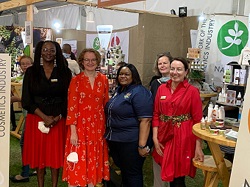
Offbeat 10 June 2016
I saw a post the other day, on visual literacy. It made sense to me, unlike most of the other posts I see, which have some kind of humour or motivational content, all of which is instantly disposable. The core message of the post is that we (I assume the world and everything in it), is producing a generation that is more competent at editing pictures in a programme like Photoshop, than it is at editing words.
The first ting I do every morning is to check my Facebook. Over and above the posts of friends, it gives me a sense of the wider world around me, for instance what will be dominating attitudes in future, locally and internationally. It’s sort of like looking at T-shirts. If you see a face on a T-Shirt, you know that the person to whom the face belongs is current in popular culture and occupies space in the collective heads of the masses.
I find a lot of Buzzfeed posts on my Facebook timeline, usually liked by friends. The one thing I can tell you is that most of my friends understand visual literacy, given the way they fairly regularly press like on the perennial list of Photoshop fails, normally the ones that show people distorting parts of their bodies to make themselves look more attractive.
Obviously the exercise of personal visual literacy is important, and to fail is worthy of derision and laughter. It shows up in the professional realm as well, in the form particularly of infographics, which can range from highly detailed and carefully constructed logical progressions of telling images, to simple collections of graphs on the same theme, and on the same page.
It also becomes important in presentation skills. Ugly little cartoons to ‘enliven’ a presentation are dated, and should be a disciplinary offense, given that they assume that every recipient of the presentation is somewhere below the level of children who are already bored with unappealing Etch-a-Sketch figures in pink and blue, with grotesque smiles that would make Henry Moore leave the room in disgust.
So, extending the obvious, it is clear that visual literacy is a critical element of personal and professional lives. In other words, if you can’t use Photoshop to edit an image, you will not be a functioning member of society. And if you can’t afford the Photoshop subscription, you need to go to the web and research free alternatives.
Here’s the riff on this. If visual literacy is coming to dominate transfer of information we are in so much trouble.
It seems easy to get messages across with visual literacy, especially if you want to say something like, “I have a big bum, which is probably desirable, if your idea of a long and fulfilling relationship is with someone like Kim Kardashian who is rumoured to have had fat implants back there and, occasionally, to wear padded panties for extra effect.
On the other hand, visual literacy is difficult when something like detailed instructions are needed. It’s conceivable, perhaps, to draw a picture of some dirty dishes (implying they need to be washed), followed by a cup (implying make me something hot to drink, and hopefully it will be coffee), but how do you use pictures to request a non-standard task, like, “Clean in the corners of the office, because we had a party last night, and chuck the receptionist in the stationery cupboard until she comes to.”
Essentially, words are still utterly important, and visual literacy is going to be damaging. My best guess is that it will further entrench the classes of haves and have-nots. However the haves may also be in difficulty in this case, assuming they can’t be particularly bothered to learn how image editing works, and wind up among the ranks of conspicuous Photoshop fails.
For now, get into the idea of photo editing. Expect your kids’ schools to also provide some kind of artistic education. Perhaps software can be a gift of choice. Literacy has to work both ways, visual and verbal. If you can’t approximate Kim Kardashian’s backside, your future is limited.











































